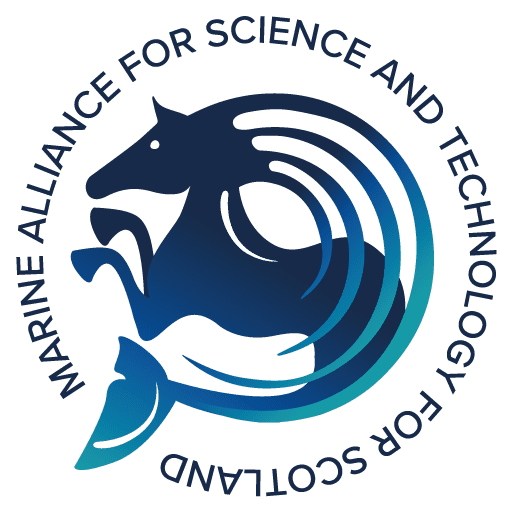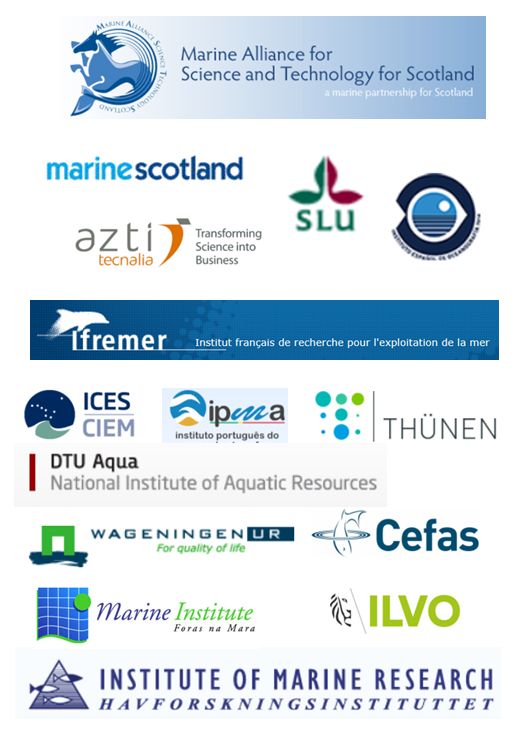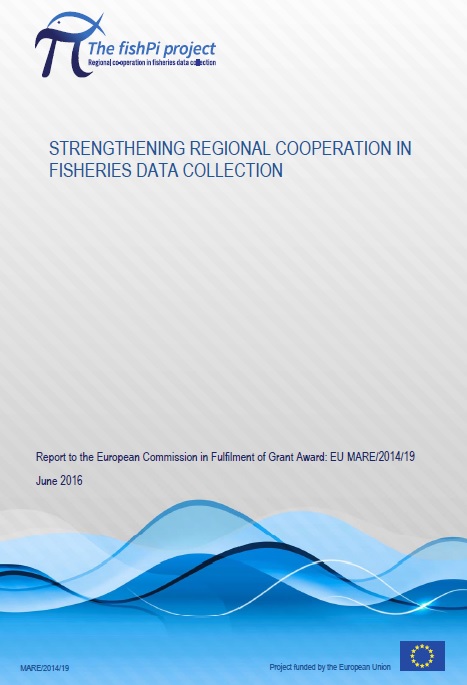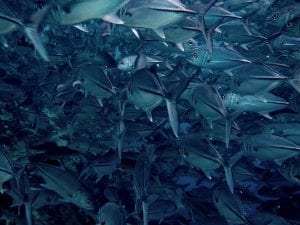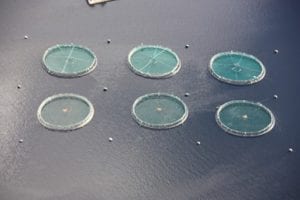The FishPi2 project bought together over 50 scientists from 14 institutes, from 10 Member States (13 countries and autonomous regions) in work package teams, to address biological data collection in EU waters. The project consortium spanned the basins of the North Sea and Eastern Arctic and teh North Atlantic. The project consortium reunited many of the participants of the fishPi project (see below) with additional participation from Regional Co-ordination Meeting North Atlantic (RCM NA) institutions. The project built on the work achieved in the fishPi project, further strengthening regional cooperation, and has provided some clear guidance on the implementation phase of regional sampling. The project team established close links with other successful consortia and the STREAM project in particular, thus building both within region expertise and facilitating pan-regional cooperation.
Work packages have specifically addressed:
- the operation of putative Regional Coordination Groups (RCGs) (WP1);
- the scoping of regional fisheries (WP2);
- regional sampling plans for commercial fisheries (WP3);
- stomach and incidental bycatch (WP4);
- small scale and recreational fisheries sampling (WP5);
- national and regional data quality (WP6);
- dissemination (WPs 7&8)
The report which documents the work conducted under the FishPi2 project is divided into a Summary Report, a series of related Annexes which contain more detailed material relevant to each WP; and ancillary R code.

fishPi was a research project with the aim of “Strengthening regional cooperation in the area of fisheries data collection”. The project brought together over 40 experts from 13 scientific institutes in 12 countries (10 member states) and two internationally recognised survey design experts. It was funded by EU MARE grant MARE/2014/19, with a 14 month timeline commencing in April 2015.
The project has trialed the way sampling designs would be developed in a regional setting and showed that collaboration and consultation is required at face to face meetings through regional groups that focus on a particular group of fisheries. The project was the first step in this process and one of the main outcomes is the framework to take the process forward; developing data formats, data sharing agreements and easily accessible software for data sharing, checking and analysis, and for the simulation testing of sampling designs. These designs are predicated on common data collection protocols and the use of the appropriate statistical estimators; the implementation of such designs would thus require the adoption of the standard survey sampling techniques and the use of common sampling and estimation routines by the sampling institutions.
To download the fishPi final report click here or on the images below.
